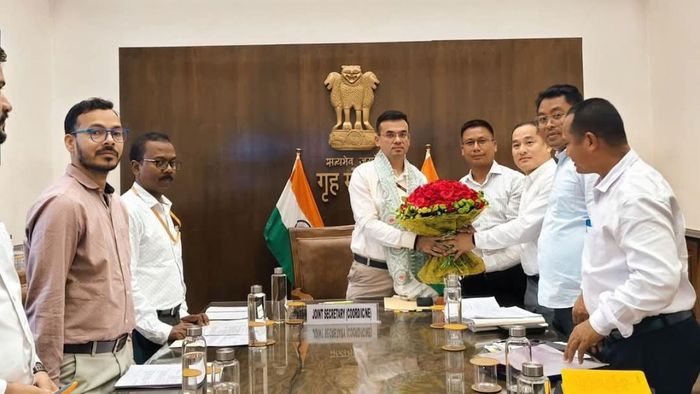Centre reviews Bodo Accord; ABSU warns of stir if demands aren’t met by 2026
A crucial review meeting concerning the implementation of the Bodo Accord 2020 took place today at the North Block, Ministry of Home Affairs, New Delhi.

- Jun 26, 2025,
- Updated Jun 26, 2025, 4:10 PM IST
A crucial review meeting concerning the implementation of the Bodo Accord 2020 took place today at the North Block, Ministry of Home Affairs, New Delhi. The meeting was attended by representatives from the Government of India, the Government of Assam, and the signatory Bodo organisations.
Joint Secretary (North East) Neeraj Kumar Bansod chaired the session, with key attendees including Deputy Secretary N. R. Minz, Secretary of the Home Department of Assam Partha Majumdar, ADGP Hiren Nath, and BTC Principal Secretary Akash Deep.
Representatives from the All Bodo Students' Union (ABSU), Ex-NDFB, and the United Bodo People’s Organization (UBPO) were part of a 10-member delegation that participated in the discussions. The meeting focused on key unresolved issues and priority demands under the accord, addressing critical concerns that require attention for the successful implementation of the accord.
Key topics discussed included the expansion of the Bodoland Territorial Region (BTR) to incorporate Bodo-majority villages in Sonitpur, Biswanath, and adjacent southern areas. Amendments to Article 280 and the pending 125th Constitutional Amendment Bill, aimed at ensuring greater autonomy for BTR, were also highlighted. Furthermore, the meeting addressed the granting of Scheduled Tribe (Hills) status to Boro Kachari people in Karbi Anglong.
Also Read: Assam: KAAC extends pension benefits to employees and former MACs
The meeting also covered the expedited notification of BKWAC villages under TAC and RHAC, and the full implementation of the FRA Act within the BTR region. Other points of discussion included the inclusion of educational institutions under government provincialisation, withdrawal of cases, ex-gratia to martyrs' families, and rehabilitation of former cadres.
The Bodo organisations regarded the discussion as constructive and outcome-oriented, with an emphasis on the speedy and time-bound implementation of remaining commitments. The ABSU leadership strongly reiterated the demand for visible progress before 2026, cautioning that failure to act within the stipulated timeframe might necessitate a democratic movement.
The organisations stressed that continued inaction could prompt further actions to ensure the rights and aspirations of the Bodo people are upheld, highlighting the urgency of the situation and the need for immediate attention to their concerns.